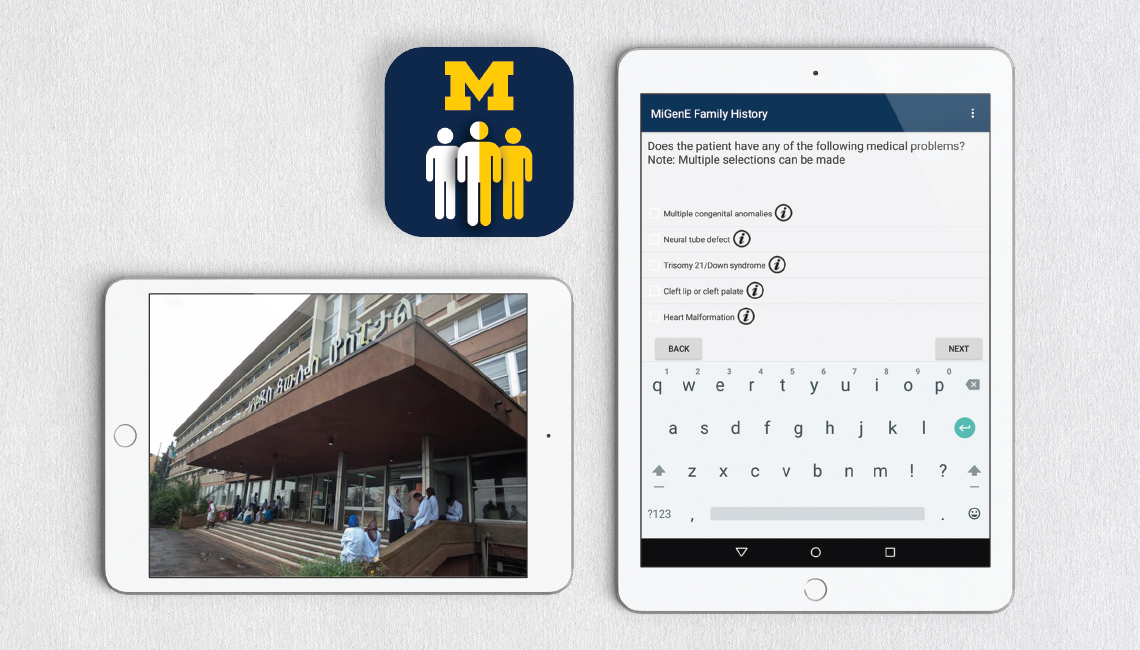Monday, September 17, 2018
App helps spread awareness of genetics in low income countries
This article brings attention to the fact that genetic research has been rapidly expanding with technology. Scientists are able to do things that were previously only thought of as science fiction, such as edit genes, or scan a person's genome. Genetics is such a new science and the research is expanding constantly and may one day impact our daily lives. It is not impossible to imagine a society in which we scan a newborn's genome and identify certain diseases/health conditions they may be susceptible to acquiring later in life. However, it is important to remember that in some parts of the world, there is a lack of technological advances, infrastructure and lack of funds, in general, to support this kind of technology in the health field. These areas of the world are just as likely to have genetic defects/diseases compared with wealthy parts of the world and therefore deserve to have access to information that can predict the likelihood of genetic health conditions.
This idea led a team to develop an Android app, called the MiGene Family History app, that tries to spread the knowledge and awareness of genetics in low and middle-income areas. The intention is for the app to be used by health care providers in low and middle-income areas, and it will serve as a means of collecting family history data and can tell families if their child is prone to developing certain genetic health conditions. The app has been tested on the small scale in Ethiopia and was tailored to focus on the development of pediatric birth defects and genetic diseases. They found that the health care providers found the app easy to use and that having this kind of data available can influence future decisions made by Ethiopia's ministry of health. The study also found that the rate of genetic defects/diseases was very similar to that in previously studied affluent countries, further confirming to the team to have some sort of technology to provide basic genetic information to those in low-income areas.
I really enjoyed this article because it brought attention to one of the most important facts about genetics and genetic disorders: that genetic is based on randomness. Wealthy nations are susceptible to developing genetic disorders just like low-income areas. But this does not mean that they should be the only ones having access to important genetic information that can possibly decide whether or not a couple wants to reproduce. I think it is important that people in these low-income areas are at least knowledgeable in some of the rapidly expanding research around genetics. This is information that I hope one day everyone can have access to, because genetic information can really influence crucial life decisions. If scientists really wanted to help everyone, then I hope one day that this kind of technology becomes affordable to everyone because if the technology and information is available, it would truly change the world if everyone that wanted to take advantage of it had access to it.
Article:
https://www.usnews.com/news/best-countries/articles/2018-09-11/how-an-app-helps-to-collect-genetic-data-in-ethiopia-and-ghana
Related article:
https://www.nature.com/articles/s41436-018-0069-6
Subscribe to:
Post Comments (Atom)

Kathleen,
ReplyDeleteThis is the first time I have ever heard of the use of apps in facilitating the knowledge of genetics in a healthcare setting. Although I find the app's use in developing countries promising, I find that the benefits of it are still limited due to a lack of resources. A family may know more about the likelihood of a disease to develop, however, will they be able to afford such treatment due to, unfortunately, their lower socioeconomic status?
I was actually not aware of the existence of this app, and I'm glad that something like this does exist. I guess as someone who's born in America and has easy access to my health information, I didn't realize that there are many people in the world who don't. Although not many people might be able to download the app in low-income area, I do hope that one day everyone has the ability to access genetic information and data.
ReplyDelete